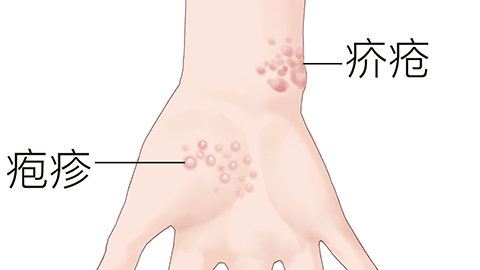What causes scabies?
Generally, scabies may be caused by factors such as a weakened skin barrier, poor personal hygiene habits, scabies mite infection, eczema, diabetes, and others. It is recommended to seek timely medical attention, identify the underlying cause, and receive symptomatic treatment under a doctor's guidance. Detailed explanations are as follows:

1. Weakened Skin Barrier: Some individuals have a thin stratum corneum and insufficient sebum production, resulting in reduced skin defense against external pathogens and increased susceptibility to infestation by scabies mites. Daily use of a mild moisturizing cream can help maintain skin hydration. Wearing cotton and breathable clothing to reduce skin friction can also help strengthen the skin barrier function.
2. Poor Personal Hygiene: Failure to bathe or change clothes regularly, or not thoroughly drying washed clothes in sunlight, may promote scabies mite growth and increase the risk of scabies infection. It is important to develop a daily bathing routine, dry clothes under direct sunlight after washing, and regularly clean the living environment to reduce conditions favorable to mite proliferation.
3. Scabies Mite Infection: Scabies mites parasitize the epidermal layer of human skin, burrowing tunnels that irritate the skin and cause symptoms such as itching and rash. The disease can spread through direct or indirect contact. Patients should follow medical advice to apply topical medications such as lindane cream, crotamiton cream, or sulfur ointment to affected areas.
4. Eczema: When eczema is present, the skin is in an inflammatory state with impaired barrier function, making it more susceptible to scabies mite infestation and exacerbating symptoms such as itching and swelling. Under a doctor's guidance, medications such as hydrocortisone butyrate cream, desonide cream, or mometasone furoate gel may be used to alleviate eczema symptoms.
5. Diabetes: Poorly controlled blood sugar levels in diabetic patients can impair skin circulation and nutrient supply, weaken immunity, and increase the risk of scabies mite infestation. Additionally, skin healing is slower after infection. Patients should follow medical instructions to control blood sugar levels using medications such as insulin injection, glimepiride tablets, or metformin extended-release tablets.
It is important to avoid sharing personal items such as towels, clothing, and bedding with others to reduce the risk of indirect transmission. Maintain a well-ventilated and dry living environment, regularly clean and disinfect daily necessities. If family members develop symptoms of scabies, they should be examined and treated simultaneously to prevent cross-infection.





